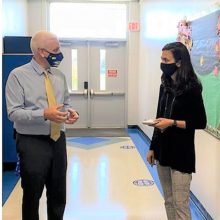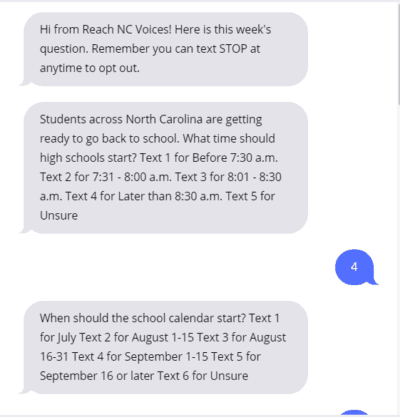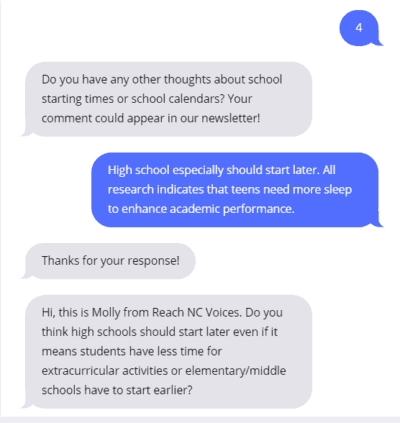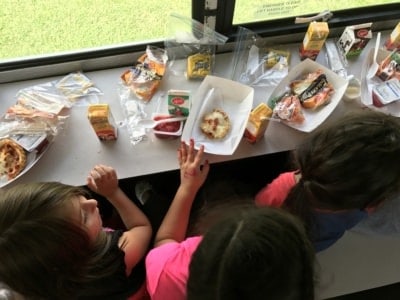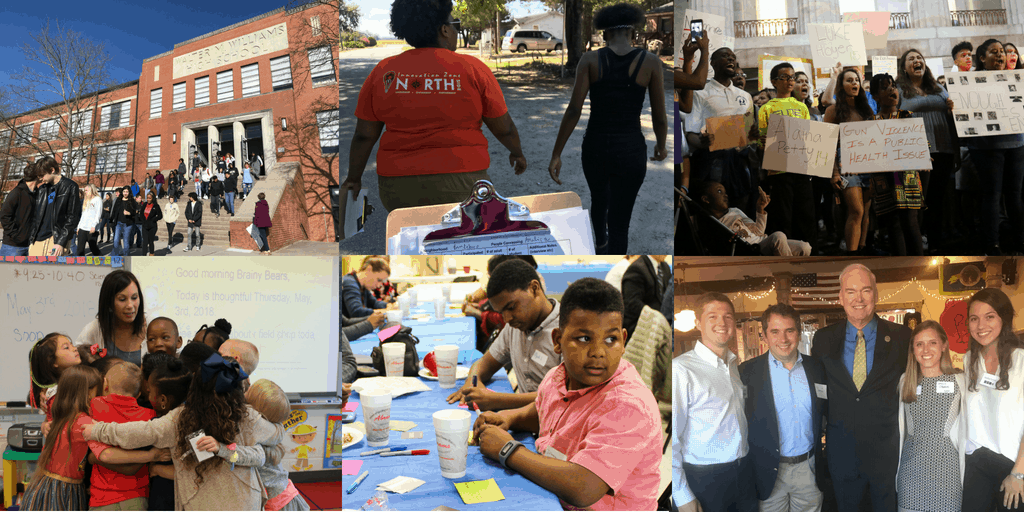

The Reach NC Voices team believes in the power of listening. We believe that your voice, and the voices of all North Carolinians, matter deeply. We believe that engaging parents, students, teachers, politicians, farmers, coffee shop employees, and everyone else in conversations about our state’s future is vital to creating a better North Carolina.
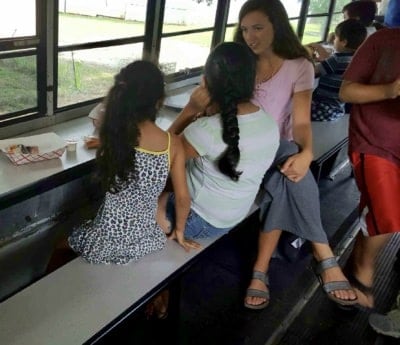

In the time since I joined the Reach NC Voices team as an intern last summer, I’ve had the privilege of traveling across the state to engage people in these conversations. Sometimes, that looks like launching a survey about summer meals on tablets from inside a school bus in Rowan County. Other times, it looks like striking up conversation with people on the streets of downtown Durham to ask them about their hopes and dreams.
Yesterday, my colleague Nation told the story of what Reach NC Voices is and what it hopes to be, while documenting some of the new technology our team has built over the past year. Today, I want to give you a better understanding of our work by lifting up highlights from the last fiscal year.
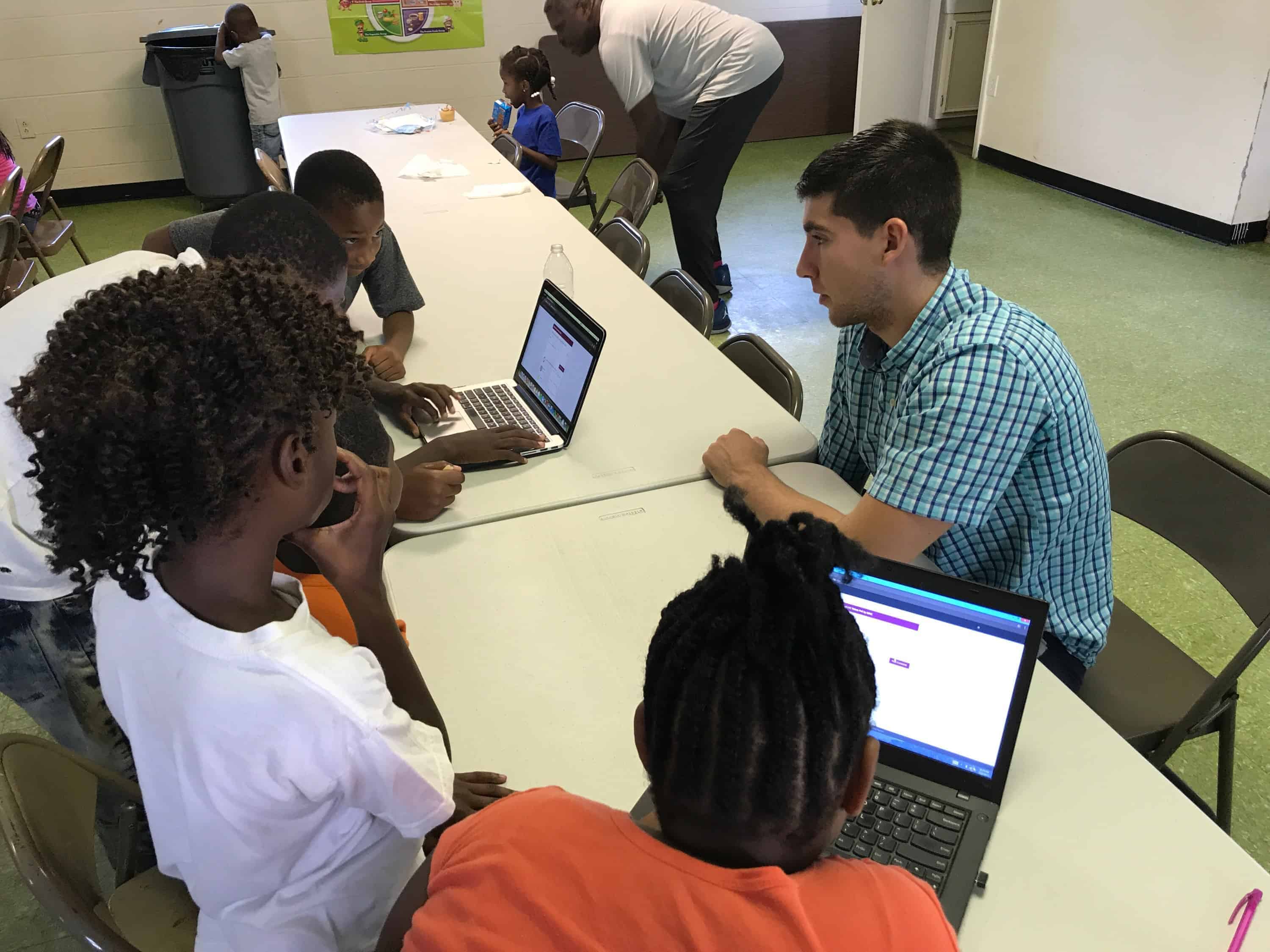

July 2017
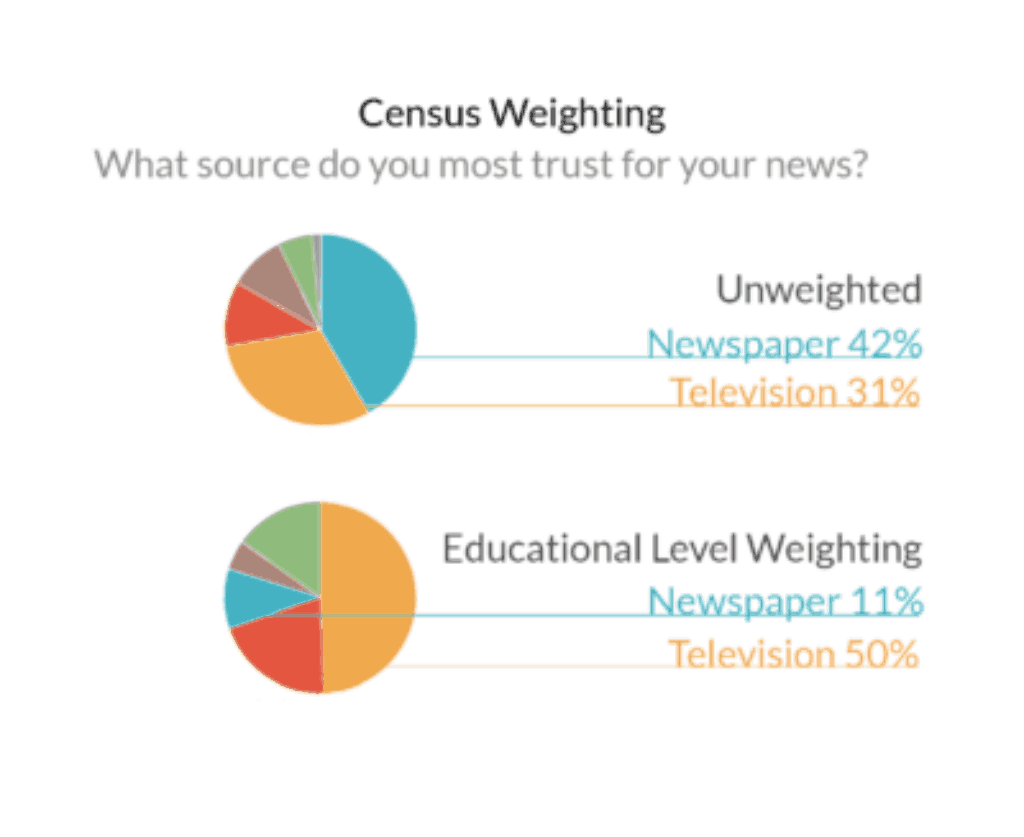

In July, we visited Cove City to learn how one rural church worked to overcome the transportation barriers that prevent students from accessing no-cost summer meals. We launched a survey for students on improving the service.
We also launched our census weighting tool, which allows us to more accurately represent the people being surveyed.
“I hope that my 15-year-old son continues to show respect, honor and compassion for ALL mankind as he’s been taught regardless of physical, social or economical differences.” — Mother from Durham County
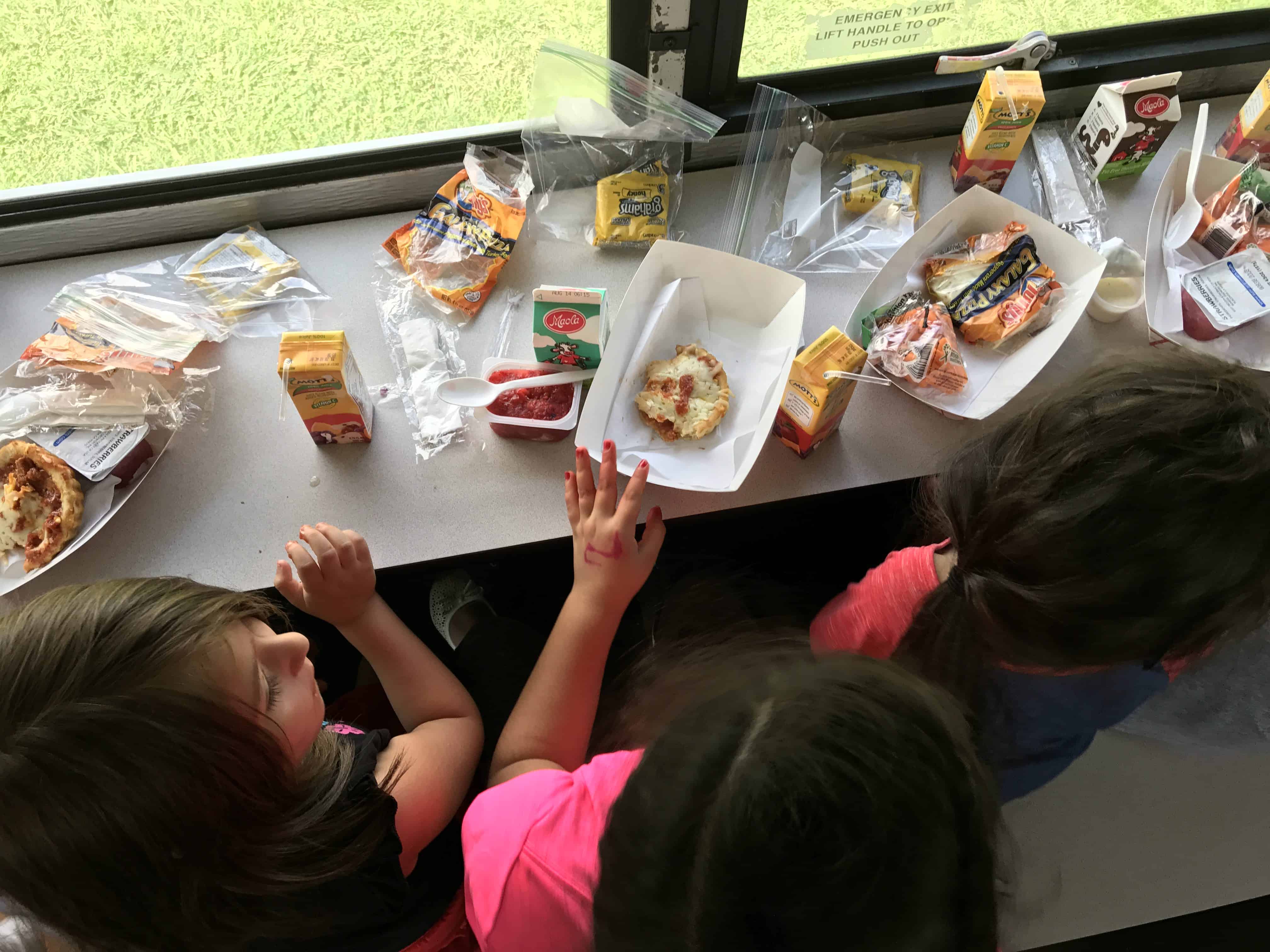

August
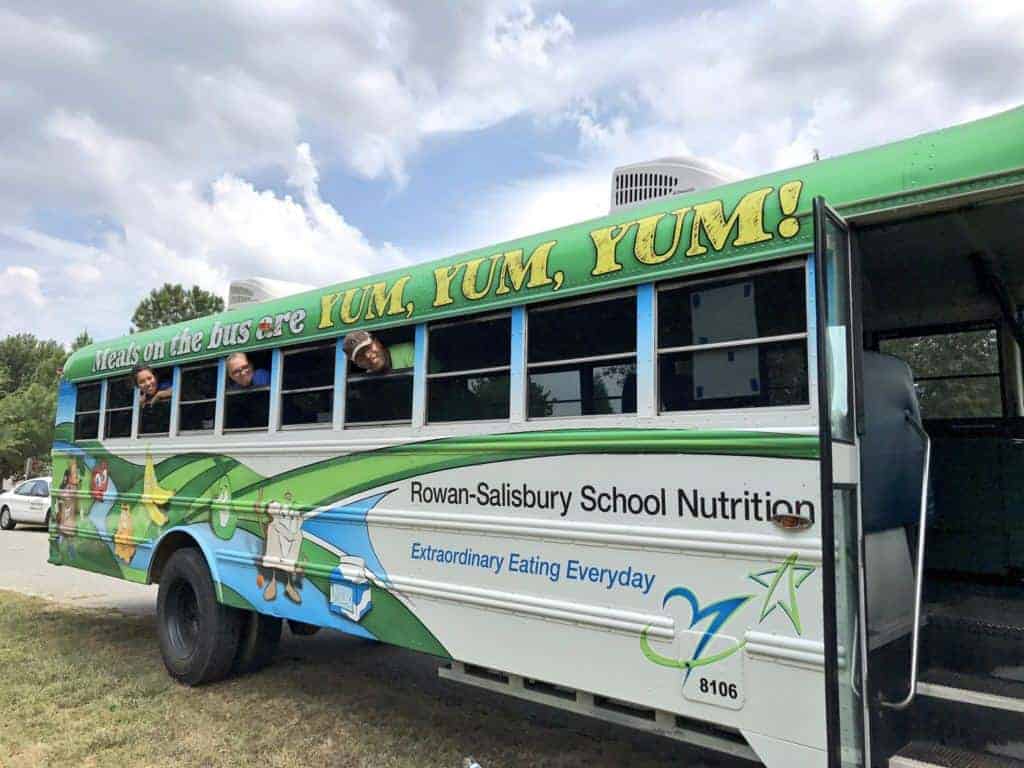

We traveled from neighborhood to neighborhood on the bus, talking with students and parents along the way about ways to improve the Summer Food Service Program. Then, we provided a final report to site directors with feedback from our surveys for future improvement of the program.
“This program helps us to meet the needs of children and youth in our camps. It is also a good source of nutrition for those who may not have adequate nutrition.” — Rowan County resident
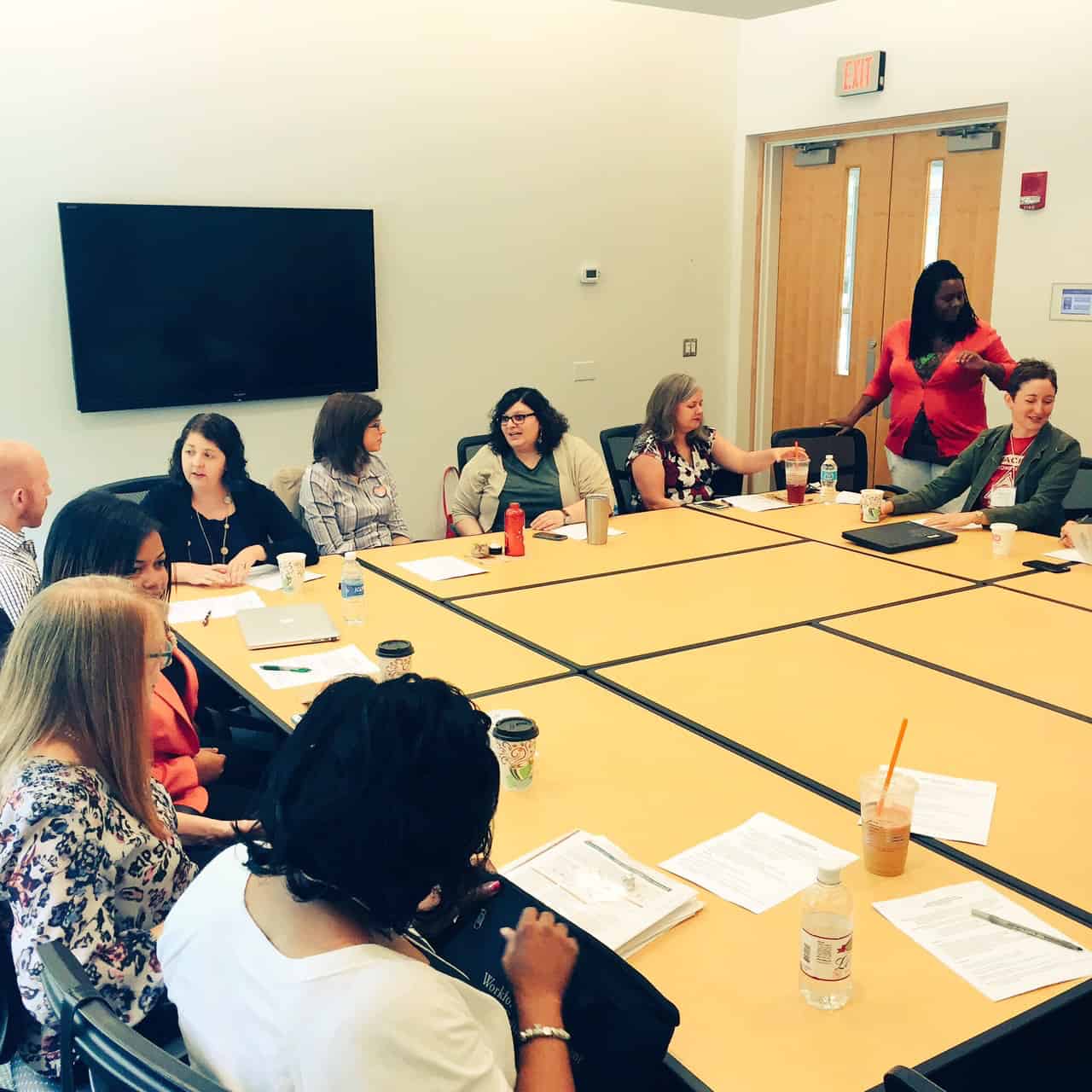

September
In September, we joined forces with the Hope Street Group to get feedback from teachers on professional development. We heard from 12,000 educators across the state. On September 25th, we received our 100,000th poll response.
“The legislature has made it clear that the teaching profession is not valued in this state.” — Macon County resident
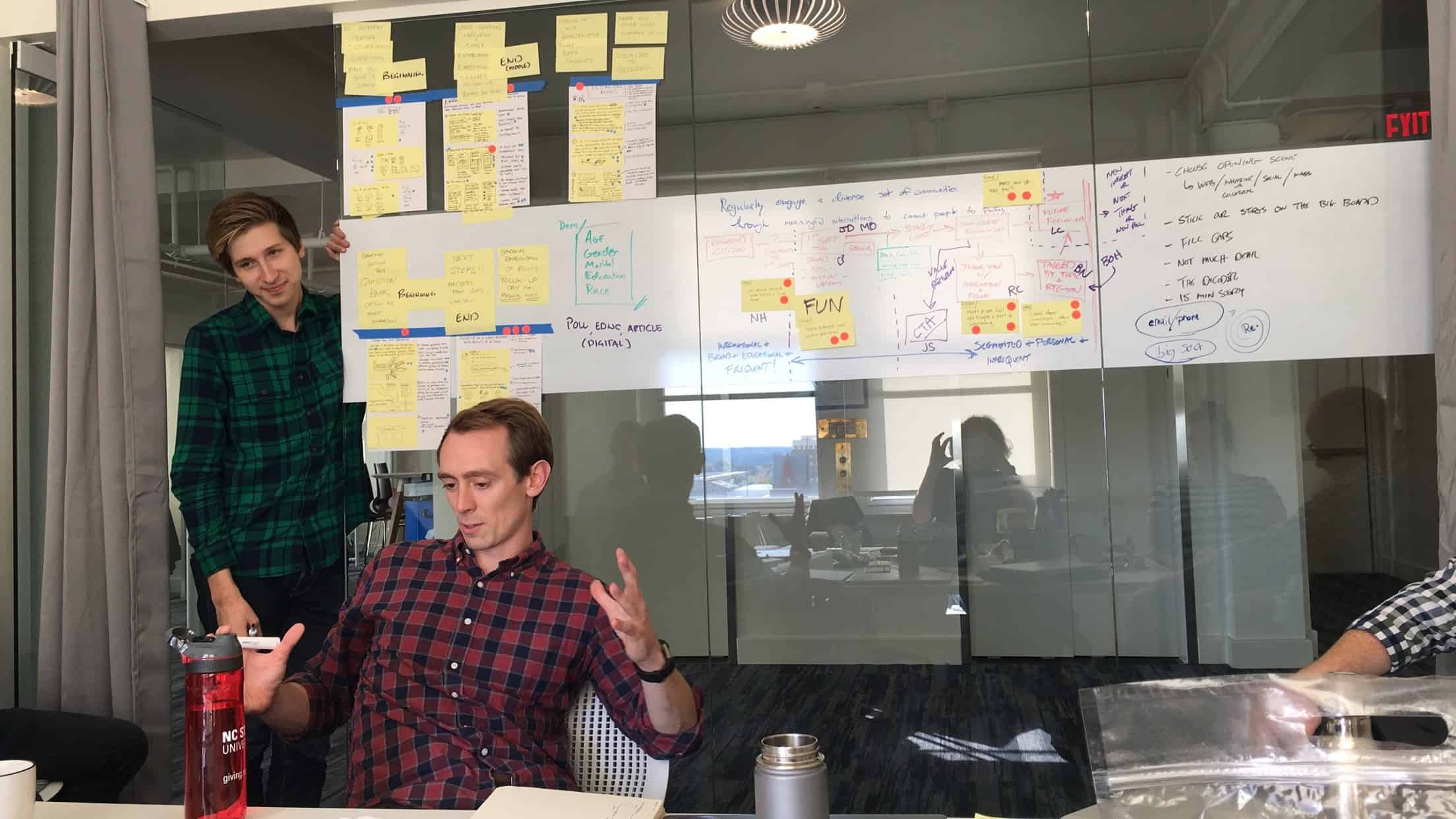

October
In October, the Reach NC Voices team began a Design Sprint, discussing and developing a way to reinvent current technology and close the engagement cycle. Adopting the philosophy from Google Ventures, the sprint was a five-day process that helped us move from idea to construction to launch.
“To live in a society free of prejudices and discrimination. To live in a society where you are valued by how you help others and contribute, not by your gender, skin color, life choices or religion.” — Wake County parent
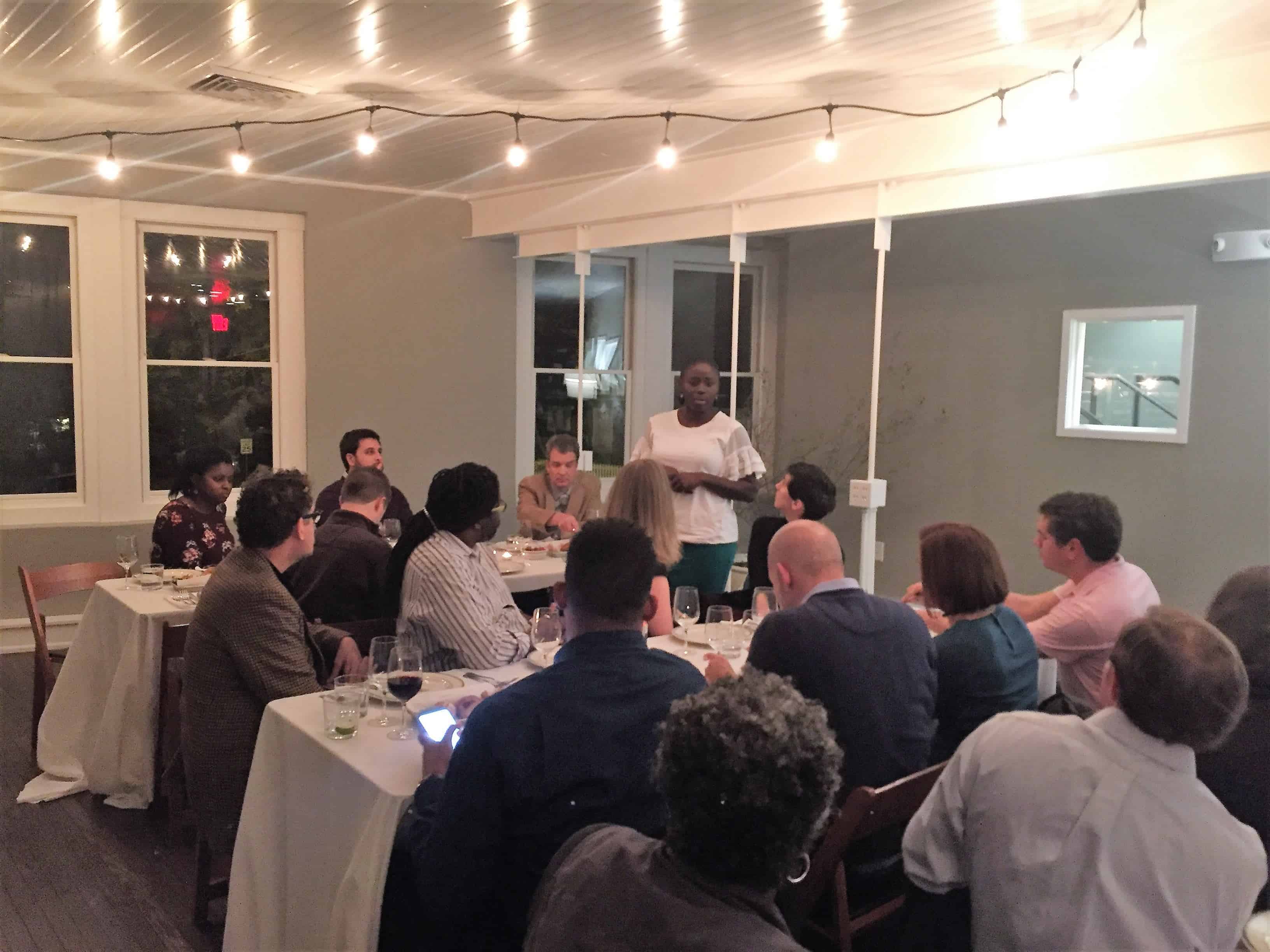

November
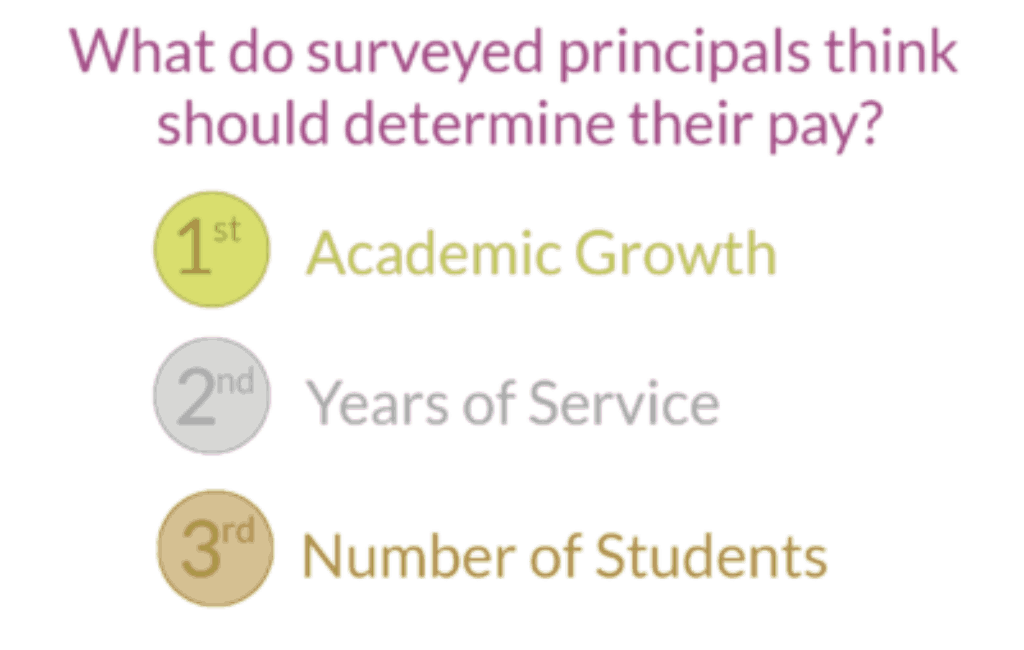

EdNC launched the principal pay calculator and used Reach NC Voices technology to spark a conversation with hundreds of North Carolina principals.
“Durham means collectively reckoning with a complicated past to build a more collaborative future.” — Durham resident
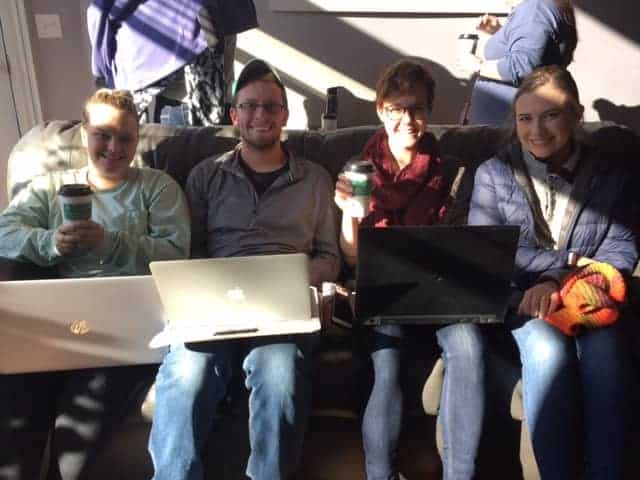

December
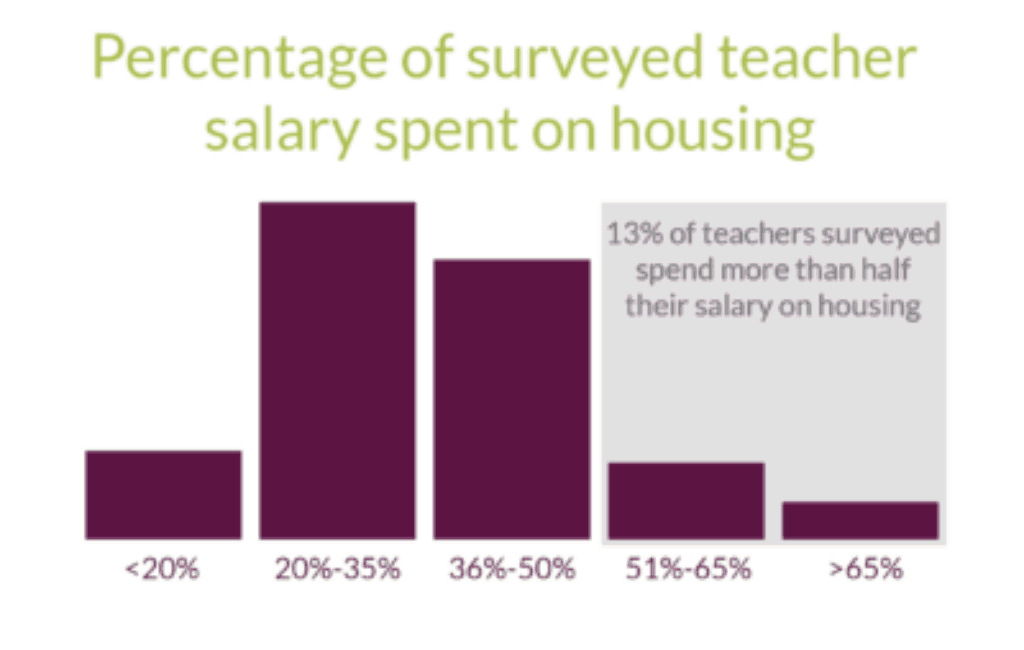

We attended the Tarboro Christmas Parade and Durham Holiday Parade where we gave out local goods and asked residents to text in what they hoped for this holiday season.
We piloted a tool to send North Carolinian’s local data by having them text the short code SNOW to 73224. Based on their location, we told them their chances of having snow during the holiday season.
“Most first year teachers have to live far from work in order to find a place to live. Their salary simply doesn’t cover decent housing in most districts.” — Teacher from Wayne County
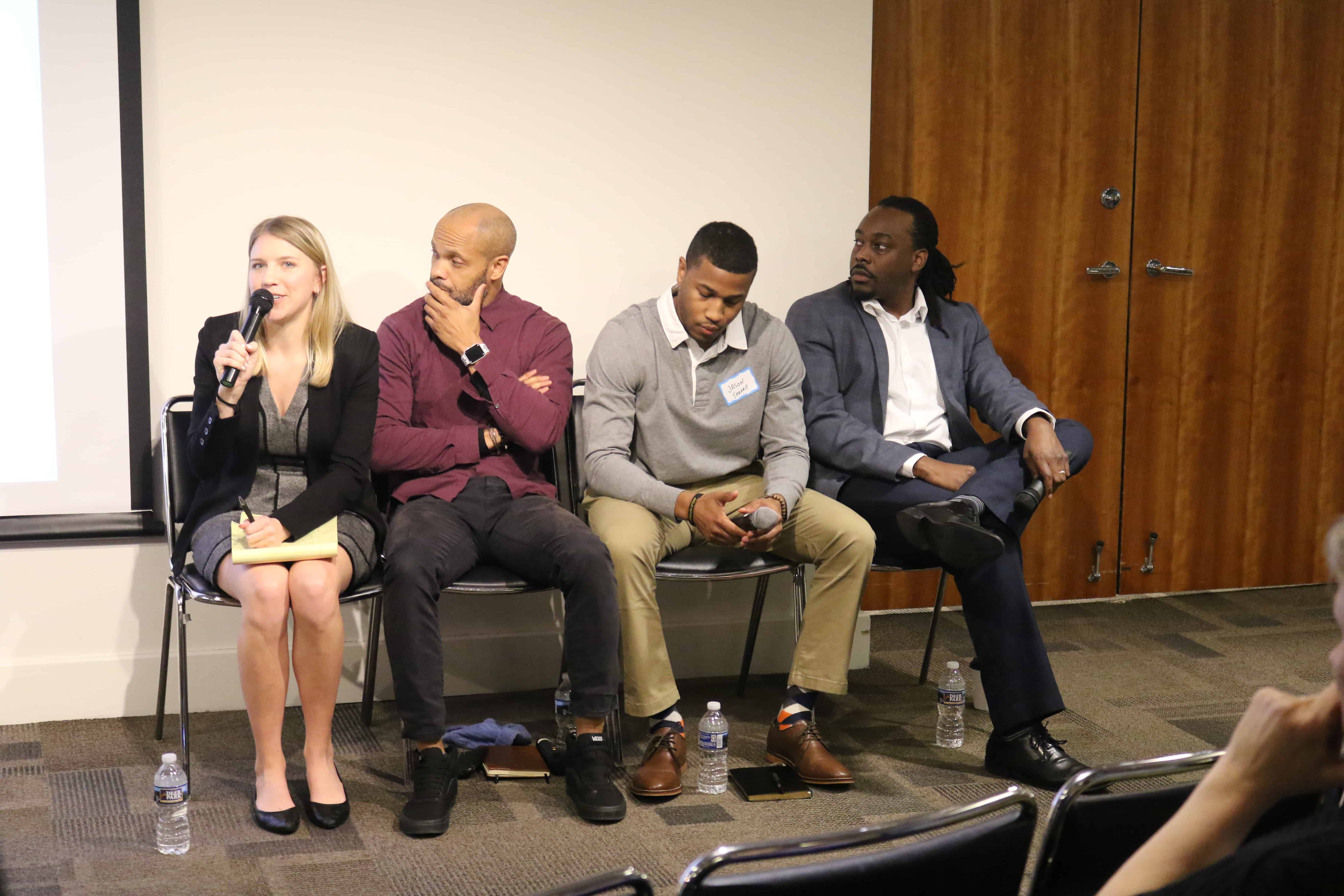

January 2018
In January, we began a conversation around equity by fostering dialogue at events hosted by EducationNC in Durham and Charlotte. During these convenings, we screened short films about equity in education through the eyes and lives of four of North Carolina’s black male leaders.
Before the audience discussed the films, they weighed in on a series of questions around equity via text message as we projected the live results onto a screen in front of them. As the results came in, the audience engaged in a conversation about their answers.


February
In February, we joined the myFutureNC commission at their first listening session in Greensboro. Working in partnership with the Friday Institute for Educational Innovation, the University of North Carolina School of Government, and EducationNC, the listening sessions aimed to generate public ideas to complement the work of the myFutureNC Commission and provide recommendations to help guide the process.
Over the next six months, we joined the myFutureNC commission at listening sessions across the state, hosting Attain the Dream events afterwards to give community members a space to continue the conversation over food and drinks. We launched a survey on postsecondary attainment that was taken by over 1,600 North Carolinians, and we provided the Commission with a report of the results. We listened and learned alongside parents, teachers, community college presidents, local business leaders, and others as they shared their thoughts and dreams about the attainment pipeline from birth through career.
“Students in my community only consider 4-year university tracks, even if they can not afford it or do not need it for their desired career path. We should be more intentional about making a tech school certificate or degree an acceptable, valued piece of education for good jobs.” — Teacher from Forsyth County
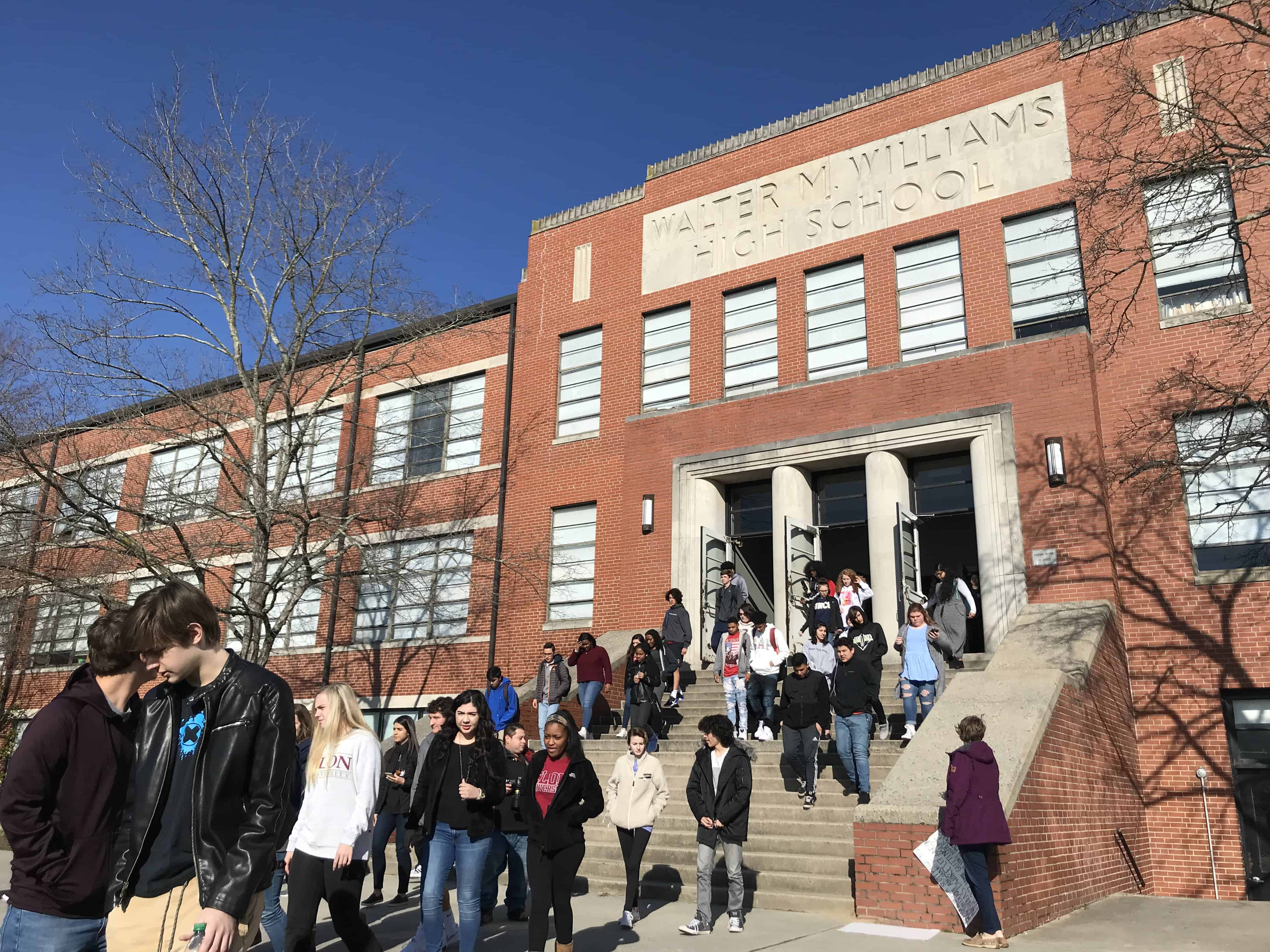

March


Then, we dive deep on that policy issue. We let people know what their fellow North Carolinians have to say about it, provide statewide and local data, link to relevant articles, and more.
“They [LEAs] should have flexibility to create their calendars to benefit the learning of students, align their calendars with community colleges for students who are dual-enrolled and allow students to take exams prior to leaving for Christmas break.” — Teacher from Pitt County
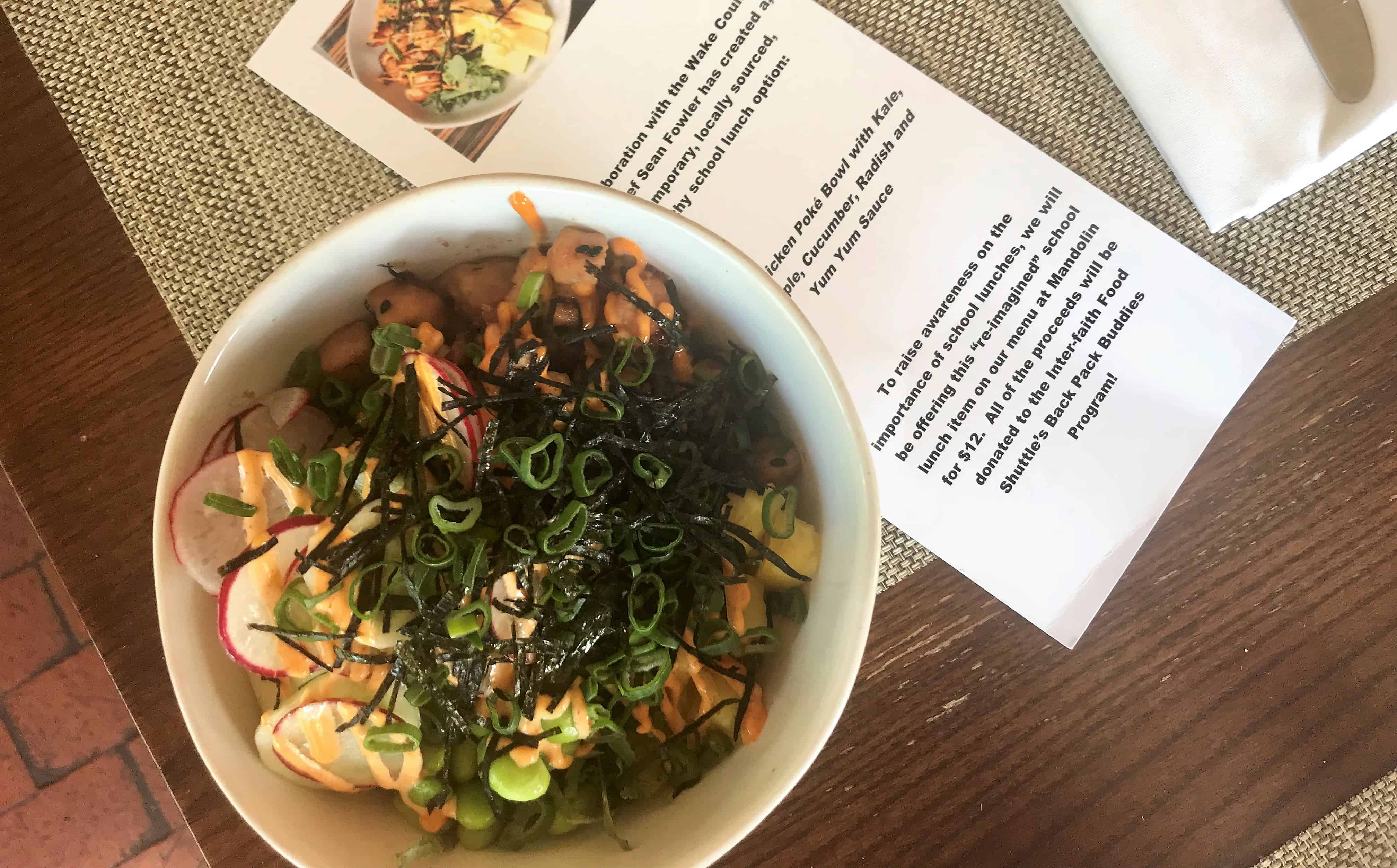

April
In April, we partnered with the NC PTA to power a set of conversations during their Reimagining School Meals event in Chapel Hill. Before and after the event, participants were quizzed on school meals trivia. As participants moved from station to station to try different versions of school meals from local chefs, they texted in short codes to rate each dish on factors such as flavor and smell.
What do you believe would help schools serve healthy and delicious meals?
“More resources to make food healthy. Standards based on real nutrition and not government nutrition models which are outdated. Ability for cafeteria staff to be creative and innovative with food and budgets.” — Resident from Orange County


May


In May, we partnered with the Blue Cross Blue Shield Foundation to power a set of surveys at their inaugural Thrive NC event. After each panel, the audience was asked a series of questions via text message, allowing them to engage further with the issues and topics at hand.
This marked one of the first times that Reach NC Voices technology was used to power two-way audience engagement during a live event hosted by a community partner.
“I want to volunteer with organizations that are working to teach and enable underprivileged communities to educate and provide nutritious foods in their own neighborhood.” — Resident from Wake County


June
In June, we launched a survey on June 19th about Juneteenth — a day that marked the 153rd year of celebrations commemorating the abolition of slavery in the United States and is considered a state or ceremonial holiday in 45 states (including North Carolina). Over 500 people responded, and 69 percent of respondents said they never learned about Juneteenth in school.
“I grew up in Texas, and I learned it in school there. Most of the folks I mention it to here have never heard of Juneteenth.” — Anonymous user
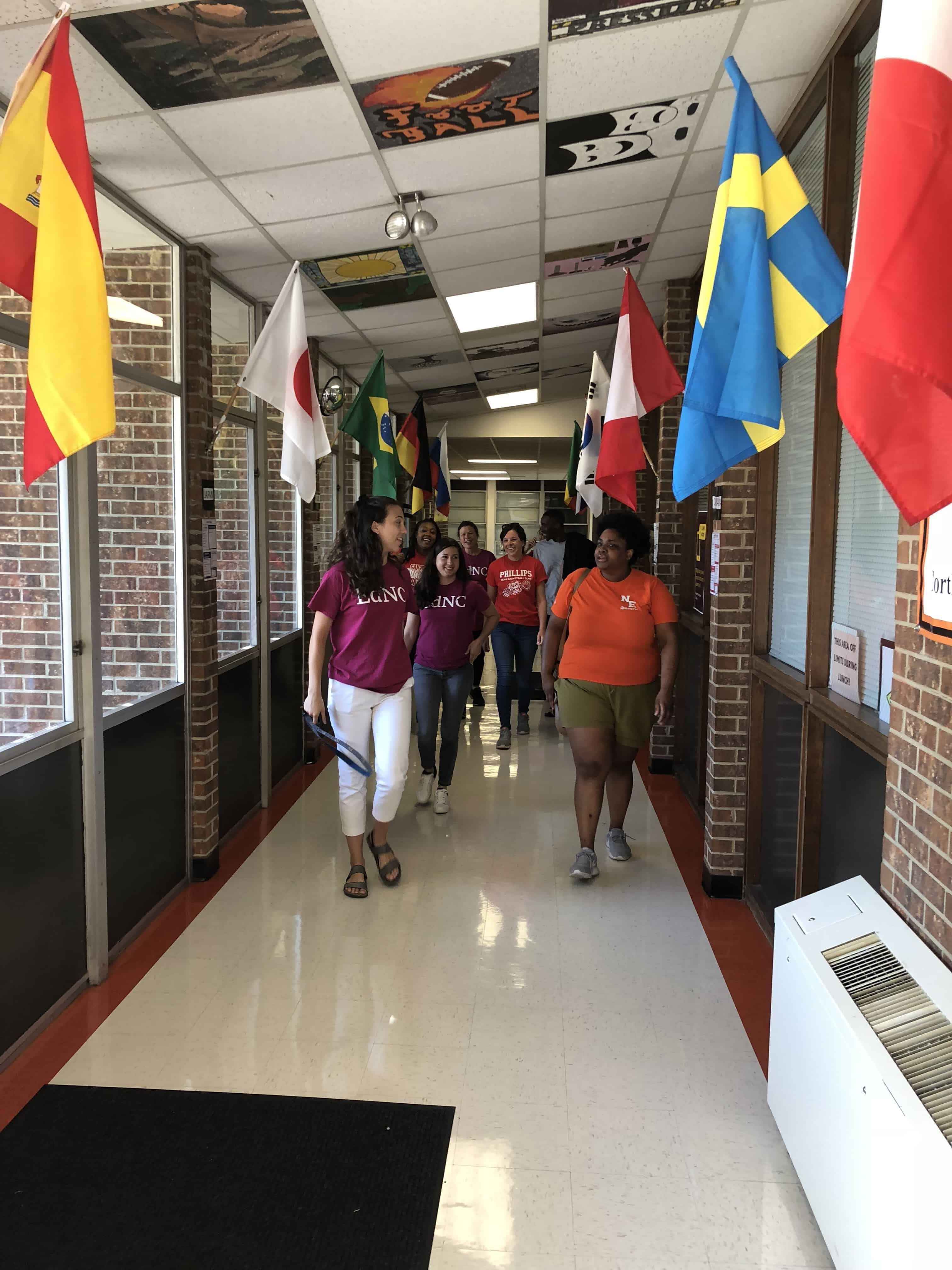

July
In July, our team walked the streets of neighborhoods in Edgecombe County alongside local school administrators and teachers. We were welcomed into homes, offered couches to sit on, and brought into conversations about the issue of student chronic absenteeism — or when students miss more than 15 days of school in one year.
We heard first-person narratives from students about the barriers they face in getting to school every day. One student, Miracle, shared with us the importance of having a teacher that believes in her.
These door-to-door conversations were part of a longer research project our team has been working on around chronic absenteeism. Other aspects of the project have included community dinners in Tarboro where students, parents, and teachers alike have gathered around food for a conversation about the causes and solutions surrounding student absences. Online and via text, we have launched Reach NC Voices surveys about chronic absenteeism to get a pulse on statewide perceptions of the issue. All of this will culminate in a series on chronic absenteeism in September.
“It takes a village to raise a child. My neighbors keep an eye on my children. What kind of future do you want? Ask them. If you want a house/car you have to work hard. You have to have the mind and willpower.” — Parent from Edgecombe County
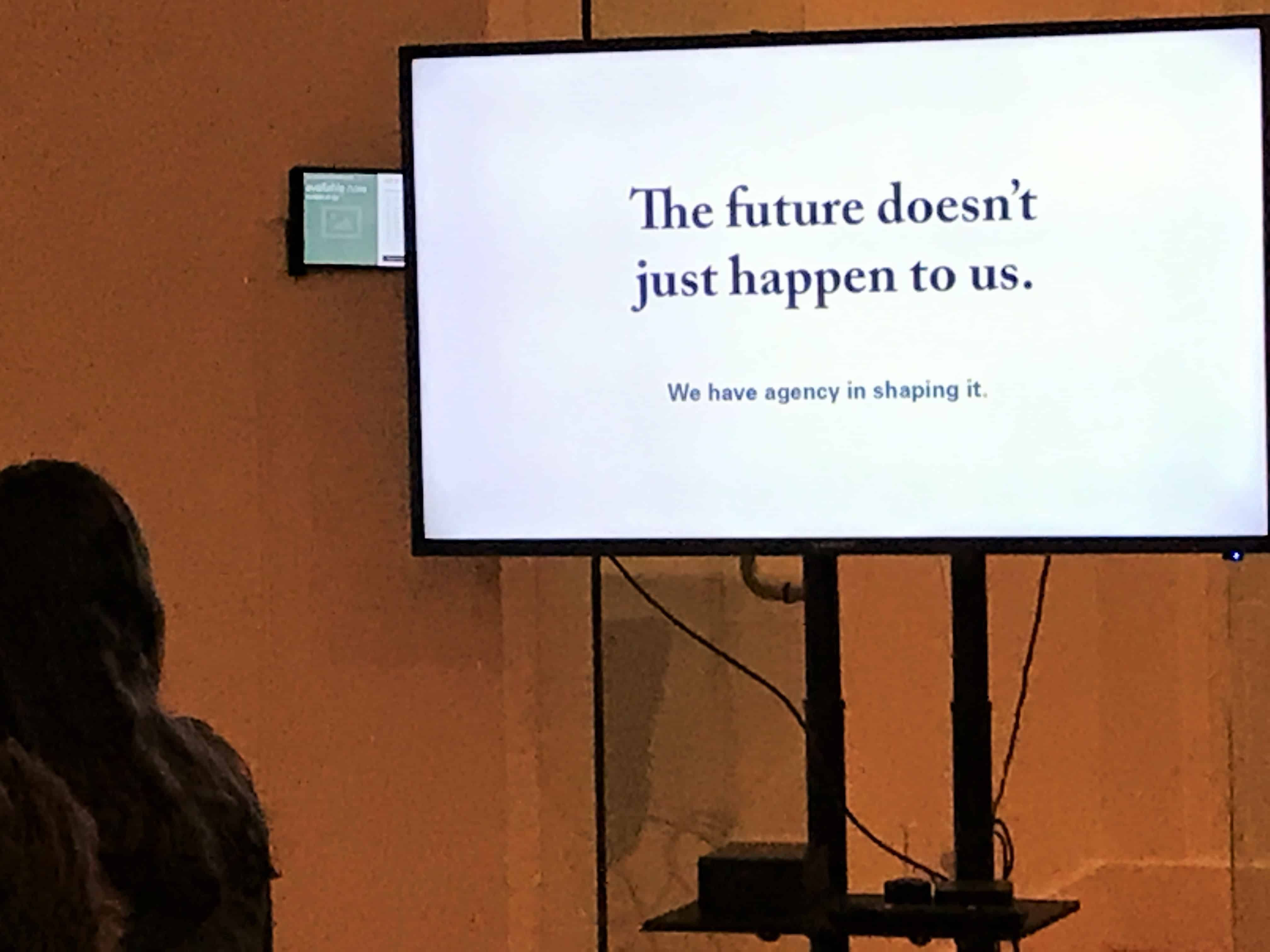

Looking forward
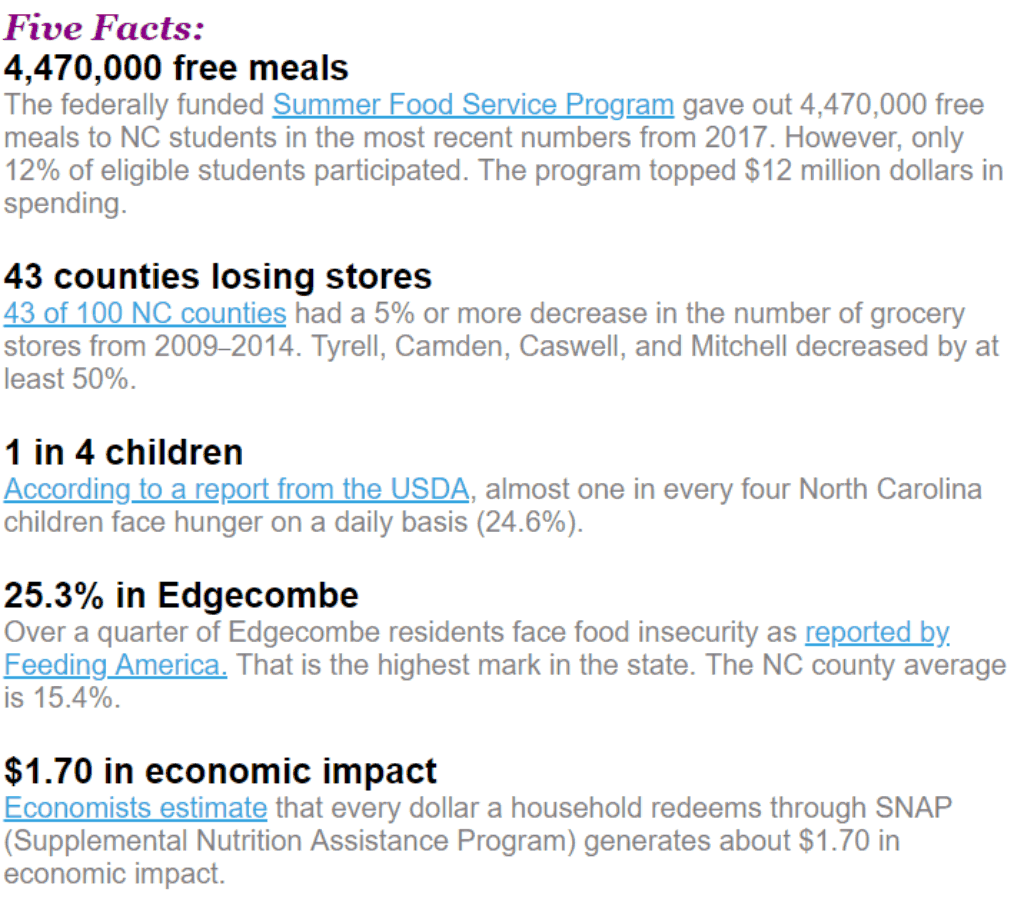

We also launched live, two-way conversations with our Reach NC Voices texting community during office hours on Thursdays. After pushing out our Question of the Week, our team spends time responding directly to peoples thoughts, comments, and questions about an array of issues. This allows for personalized, robust conversation around issues including school start times and self-driving cars.
We have also launched an initiative of educators from across the state called EdAmbassadors. They will release more information about themselves on our website in the coming weeks.
In September, we will work with the Institute for Emerging Issues to power two-way conversation at their ReCONNECT NC forum.
We will partner again with Hope Street Group to power the next wave of their teacher surveying. We will continue to listen, learn, and improve the tools and platforms we used to connect with North Carolinians.
To join our next conversation, leave your contact information below. We look forward to hearing your thoughts, stories, and perspectives on the future of North Carolina.
